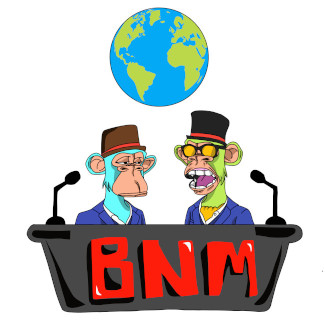Assets
US State Holding $2,700,000,000 in ‘Free Money’ That’s Ready to be Claimed: Report
Published
3 months agoon
By
admin
Billions of dollars in unclaimed assets are now being held across the US, and one state is pushing to let people know about it.
Florida Chief Financial Officer Jimmy Patronis says the state is now holding a staggering $2.7 billion on behalf of its residents, reports the ABC-affiliated news station WFTV.
“The state defines ‘unclaimed property’ as a financial asset that is unknown or lost, or has been left inactive, unclaimed or abandoned by its owner.
The most common types of unclaimed property are dormant bank accounts, unclaimed insurance proceeds, stocks, dividends, uncashed checks, deposits, credit balances and refunds, the Florida Department of Financial Services said.”
Florida has launched its own platform to help people find their unclaimed assets.
In addition, the National Association of Unclaimed Property Administrators has a site dedicated to unclaimed property, and the organization says it’s helped 10’s of millions of people track down more than $4 trillion in assets.
A significant amount of money is also in forgotten 401(k) accounts, and the financial resource platform Bankrate has outlined a number ofways that people can track them down.
One is to search the Department of Labor’s website, which maintains records of public and private sector businesses that provide employee benefit plans.
Bankrate also recommends people contact their former employer directly and ask human resources to look up whether you took part in a 401(k) plan.
Don’t Miss a Beat – Subscribe to get email alerts delivered directly to your inbox
Check Price Action
Follow us on Twitter, Facebook and Telegram
Surf The Daily Hodl Mix
 

Disclaimer: Opinions expressed at The Daily Hodl are not investment advice. Investors should do their due diligence before making any high-risk investments in Bitcoin, cryptocurrency or digital assets. Please be advised that your transfers and trades are at your own risk, and any loses you may incur are your responsibility. The Daily Hodl does not recommend the buying or selling of any cryptocurrencies or digital assets, nor is The Daily Hodl an investment advisor. Please note that The Daily Hodl participates in affiliate marketing.
Generated Image: Midjourney
Source link
You may like


Insight Into The Timing And Factors
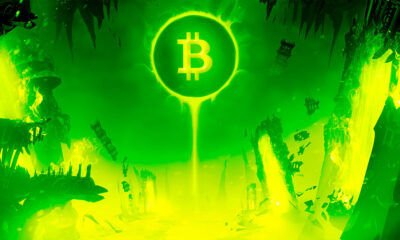

Bitcoin About To ‘Blow Higher’ Despite This Week’s Pullback, According to Glassnode Co-Founders – Here’s Why
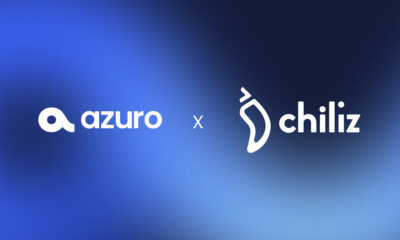

Azuro and Chiliz Working Together to Boost Adoption of Onchain Sport Prediction Markets – Blockchain News, Opinion, TV and Jobs
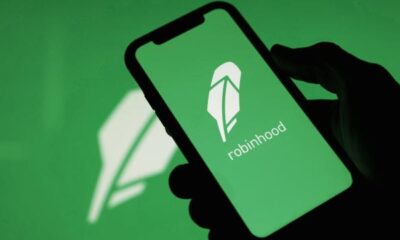

Robinhood Bleeds 164 Million Dogecoin


AIGOLD Goes Live, Introducing the First Gold Backed Crypto Project – Blockchain News, Opinion, TV and Jobs


Analyst Benjamin Cowen Warns Ethereum ‘Still Facing Headwinds,’ Says ETH Will Only Go Up if Bitcoin Does This
Assets
Government Can Freeze and Confiscate ‘Unexplained Wealth’ At Will, According to Newly Passed Rules in EU – Here’s How
Published
5 months agoon
December 25, 2023By
admin
European Union (EU) negotiators have agreed on rules for new legislation that will allow governments to freeze and confiscate so-called “unexplained wealth” that’s believed to be connected to criminal activities.
Council Members have agreed on mandatory rules for the tracing, identification, freezing, confiscation and management of assets deemed as criminal property in an enhanced effort to fight organized crime, the EU says in a new press release.
The Council says that in the newly agreed upon text, EU member states must take sprawling measures to enable the freezing of property “in order to ensure an eventual confiscation” and to allow for a final conviction in the event of a criminal offence.
Not only will member states confiscate “criminal money,” they will also adopt rules that allow them to manage confiscated assets and ensure governments are confiscating property equal to the value “corresponding to the criminal yield.”
Says the press release,
“In a first for many member states, a new rule on the confiscation of unexplained wealth will, under certain conditions, allow the confiscation of property identified in the context of an investigation in relation to criminal offences, provided that a national court is satisfied that the identified property is derived from criminal activities committed within the framework of a criminal organisation and that those activities give rise to substantial economic benefit.
The agreement pays special attention to procedural safeguards.”
If wealth or property is transferred to a third party, the new measures allow governments to confiscate it if they decide that the receiver knew “or should have known” that the reason for the transfer was to avoid confiscation.
Says Félix Bolaños, Spanish minister for justice,
“The gains from criminal activities are staggering. Only if governments have the means to claw back these profits do they stand a chance of fighting organized crime.”
The basics of the new measure were agreed upon in mid 2023, and mentioned crypto assets by name.
The new agreement will now have to be endorsed by member states’ representatives within the Council.
If approved, the text will then go through the formal adoption process in both the Council and the European Parliament.
Don’t Miss a Beat – Subscribe to get email alerts delivered directly to your inbox
Check Price Action
Follow us on Twitter, Facebook and Telegram
Surf The Daily Hodl Mix
 

Disclaimer: Opinions expressed at The Daily Hodl are not investment advice. Investors should do their due diligence before making any high-risk investments in Bitcoin, cryptocurrency or digital assets. Please be advised that your transfers and trades are at your own risk, and any loses you may incur are your responsibility. The Daily Hodl does not recommend the buying or selling of any cryptocurrencies or digital assets, nor is The Daily Hodl an investment advisor. Please note that The Daily Hodl participates in affiliate marketing.
Generated Image: Midjourney
Source link
Assets
JPMorgan debuts tokenization platform, BlackRock among key clients: Report
Published
7 months agoon
October 11, 2023By
admin

United States banking giant JPMorgan debuted its in-house blockchain-based tokenization application, the Tokenized Collateral Network (TCN), on Oct. 11, according to Bloomberg. TCN settled its first trade for asset management giant BlackRock.
The Tokenized Collateral Network is an application that allows investors to utilize assets as collateral. Using blockchain technology, investors can transfer collateral ownership without moving assets in underlying ledgers.
In its first public collateralized trade between JPMorgan and BlackRock, the TCN turned shares of one money market fund into digital tokens, which were then transferred to Barclays bank as security for an over-the-counter derivatives exchange between the two companies.
The first internal test of the TCN was conducted by JPMorgan in May 2022, with a pipeline of other clients and transactions now that TCN is live. The TCN was launched to streamline and scale the process of traditional settlements on a blockchain. The use of decentralized technology made the process faster, more secure and more efficient.
Related: JPMorgan Chase enters generative AI race with IndexGPT trademark
According to Tyrone Lobban, head of Onyx Digital Assets at JPMorgan, the new TCN platform unlocks capital and allows it to be used as collateral in ongoing transactions, boosting efficiency at scale. The platform enables the creation, transfer and settling of tokenized traditional assets. It also allows for the movement of collateral nearly instantly, unlike earlier methods.
The blockchain platform allows clients to access intraday liquidity through a secured repo transaction using tokenized collateral rather than depending on expensive unsecured credit lines. External clients who agree to the blockchain trade have their own node on which they can settle the trade and access other reports.
The U.S. banking giant has come a long way from its early days of criticizing the decentralized world and is currently actively involved in testing and launching various blockchain and crypto-centered services amid growing demand. The bank used a blockchain-based solution to settle trades with Indian banks in June.
Magazine: Bitcoin is on a collision course with ‘Net Zero’ promises
Source link
Assets
Central African Republic expands Sango project to land, resource tokenization
Published
9 months agoon
August 21, 2023By
admin
The Central African Republic (CAR) has extended its Sango blockchain project to tokenization of its land and natural resources. The country, one of the poorest and most crypto-friendly in the world, is one of the most active in crypto innovation.
According to an announcement posted on X (formerly known as Twitter), the CAR National Assembly passed a law on tokenizing land and natural resources on July 24. Among other provisions of the law, it will make it possible to obtain business visas online and allow citizens and foreigners to set up businesses “easily” and obtain licensing in real estate, agriculture, natural resource exploitation and forestry. The statement said the law was “unanimously approved.”
The CAR had announced its intentions to tokenize its natural resources last year, not long after the launch of Project Sango in May 2022. The Sango Project also called for the creation of its own Crypto Island Metaverse.
Related: Commodity tokenization is the economic aid Africa needs
The CAR’s efforts to position itself in the vanguard of crypto adoption has faced significant obstacles. The CAR was the first country in Africa, and second country worldwide, to adopt Bitcoin (BTC) as a national currency in April 2022. It reportedly repealed its status in May of this year. The country also launched its own cryptocurrency, the Sango in an effort to displace the CFA (Financial Community of Africa) franc. The Sango was not intended to be a central bank digital currency.

The Sango faced several obstacles before its launch, including the rejection of the Sango-linked citizenship program by the Constitutional Court. Nonetheless, the citizenship program, which costs $60,000 in Sango, remains on offer on the Sango Project website. The country is also considering the introduction of other cryptocurrencies.
The International Monetary Fund, which opposed the CAR’s adoption of Bitcoin, estimates the country’s GDP growth at 2.2% this year.
The SANGO Project’s Next Chapter
Exciting news! The Central African Republic is ushering in a new era of #financial empowerment through #blockchain technology.
Guided by the visionary leadership of President Professor @FA_Touadera , we’re ready to make a global impact. pic.twitter.com/m1jYjsvc0q
— Sango (@sangoproject) August 21, 2023
Magazine: Bitcoin in Senegal: Why is this African country using BTC?
Source link

Insight Into The Timing And Factors

Bitcoin About To ‘Blow Higher’ Despite This Week’s Pullback, According to Glassnode Co-Founders – Here’s Why

Azuro and Chiliz Working Together to Boost Adoption of Onchain Sport Prediction Markets – Blockchain News, Opinion, TV and Jobs

Robinhood Bleeds 164 Million Dogecoin

AIGOLD Goes Live, Introducing the First Gold Backed Crypto Project – Blockchain News, Opinion, TV and Jobs

Analyst Benjamin Cowen Warns Ethereum ‘Still Facing Headwinds,’ Says ETH Will Only Go Up if Bitcoin Does This

Tron Price Prediction: TRX Outperforms Bitcoin, Can It Hit $0.132?

Ethereum-Based Altcoin Leads Real-World Assets Sector in Development Activity, According to Santiment

Here’s Why This Analyst Is Predicting A Rise To $360

Hackers With $182,000,000 Stolen From Poloniex Starts Moving Funds to Tornado Cash

Cardano Faces Make-Or-Break Price Level For Bullish Revival

A Premier Crypto Exchange Tailored for Seasoned Traders – Blockchain News, Opinion, TV and Jobs

Crypto Whale Withdraws $75.8 Million in USDC From Coinbase To Invest In Ethereum’s Biggest Presale – Blockchain News, Opinion, TV and Jobs

CFTC Chair Says ‘Another Cycle of Enforcement Actions’ Coming As Crypto Enters New Phase of Asset Appreciation

Spectral Labs Joins Hugging Face’s ESP Program to advance the Onchain x Open-Source AI Community – Blockchain News, Opinion, TV and Jobs

Bitcoin Dropped Below 2017 All-Time-High but Could Sellers be Getting Exhausted? – Blockchain News, Opinion, TV and Jobs

What does the Coinbase Premium Gap Tell us about Investor Activity? – Blockchain News, Opinion, TV and Jobs
BNM DAO Token Airdrop

NFT Sector Keeps Developing – Number of Unique Ethereum NFT Traders Surged 276% in 2022 – Blockchain News, Opinion, TV and Jobs
New Minting Services

Block News Media Live Stream
A String of 200 ‘Sleeping Bitcoins’ From 2010 Worth $4.27 Million Moved on Friday

SEC’s Chairman Gensler Takes Aggressive Stance on Tokens – Blockchain News, Opinion, TV and Jobs

Friends or Enemies? – Blockchain News, Opinion, TV and Jobs

Enjoy frictionless crypto purchases with Apple Pay and Google Pay | by Jim | @blockchain | Jun, 2022

Block News Media Live Stream

How Web3 can prevent Hollywood strikes

Block News Media Live Stream

XRP Explodes With 1,300% Surge In Trading Volume As crypto Exchanges Jump On Board

Block News Media Live Stream
Trending

 Altcoins2 years ago
Altcoins2 years agoBitcoin Dropped Below 2017 All-Time-High but Could Sellers be Getting Exhausted? – Blockchain News, Opinion, TV and Jobs

 Binance2 years ago
Binance2 years agoWhat does the Coinbase Premium Gap Tell us about Investor Activity? – Blockchain News, Opinion, TV and Jobs
- Uncategorized2 years ago
BNM DAO Token Airdrop
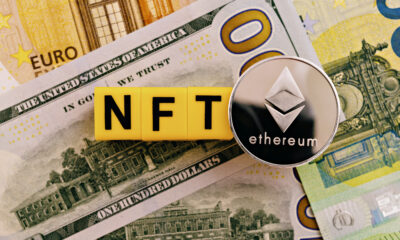
 BTC1 year ago
BTC1 year agoNFT Sector Keeps Developing – Number of Unique Ethereum NFT Traders Surged 276% in 2022 – Blockchain News, Opinion, TV and Jobs
- Uncategorized3 years ago
New Minting Services

 Video2 years ago
Video2 years agoBlock News Media Live Stream

 Bitcoin miners2 years ago
Bitcoin miners2 years agoA String of 200 ‘Sleeping Bitcoins’ From 2010 Worth $4.27 Million Moved on Friday
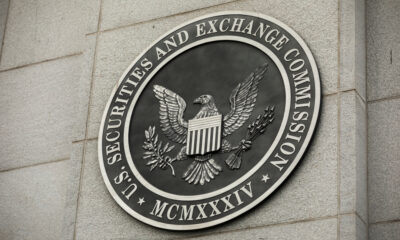
 Bitcoin1 year ago
Bitcoin1 year agoSEC’s Chairman Gensler Takes Aggressive Stance on Tokens – Blockchain News, Opinion, TV and Jobs
